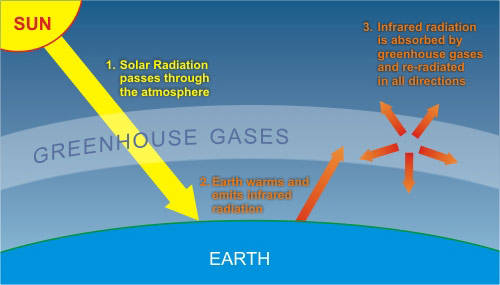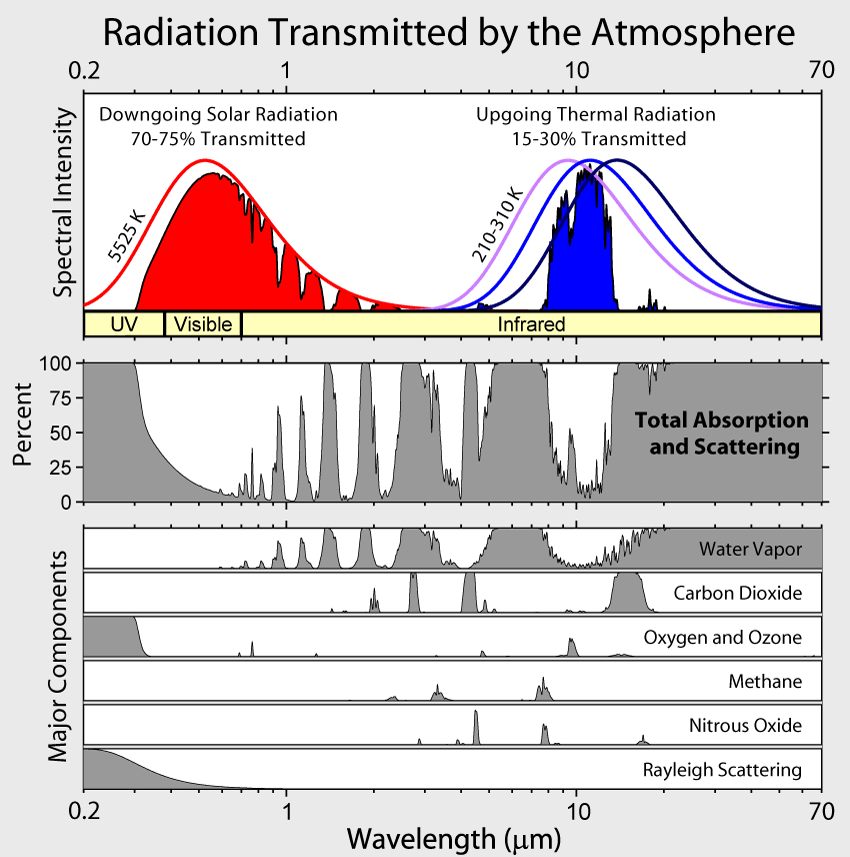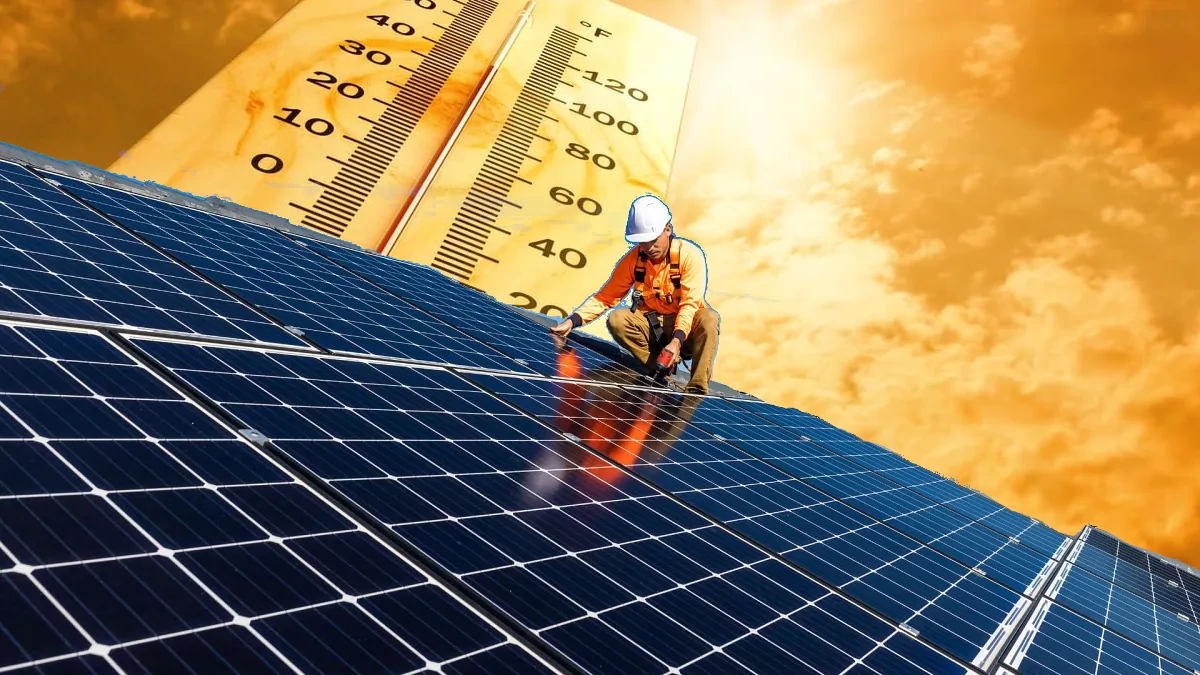Technically, if you built enough solar panels in space, they would completely block the sun and massively decrease global temperature
No Stupid Questions
No such thing. Ask away!
!nostupidquestions is a community dedicated to being helpful and answering each others' questions on various topics.
The rules for posting and commenting, besides the rules defined here for lemmy.world, are as follows:
Rules (interactive)
Rule 1- All posts must be legitimate questions. All post titles must include a question.
All posts must be legitimate questions, and all post titles must include a question. Questions that are joke or trolling questions, memes, song lyrics as title, etc. are not allowed here. See Rule 6 for all exceptions.
Rule 2- Your question subject cannot be illegal or NSFW material.
Your question subject cannot be illegal or NSFW material. You will be warned first, banned second.
Rule 3- Do not seek mental, medical and professional help here.
Do not seek mental, medical and professional help here. Breaking this rule will not get you or your post removed, but it will put you at risk, and possibly in danger.
Rule 4- No self promotion or upvote-farming of any kind.
That's it.
Rule 5- No baiting or sealioning or promoting an agenda.
Questions which, instead of being of an innocuous nature, are specifically intended (based on reports and in the opinion of our crack moderation team) to bait users into ideological wars on charged political topics will be removed and the authors warned - or banned - depending on severity.
Rule 6- Regarding META posts and joke questions.
Provided it is about the community itself, you may post non-question posts using the [META] tag on your post title.
On fridays, you are allowed to post meme and troll questions, on the condition that it's in text format only, and conforms with our other rules. These posts MUST include the [NSQ Friday] tag in their title.
If you post a serious question on friday and are looking only for legitimate answers, then please include the [Serious] tag on your post. Irrelevant replies will then be removed by moderators.
Rule 7- You can't intentionally annoy, mock, or harass other members.
If you intentionally annoy, mock, harass, or discriminate against any individual member, you will be removed.
Likewise, if you are a member, sympathiser or a resemblant of a movement that is known to largely hate, mock, discriminate against, and/or want to take lives of a group of people, and you were provably vocal about your hate, then you will be banned on sight.
Rule 8- All comments should try to stay relevant to their parent content.
Rule 9- Reposts from other platforms are not allowed.
Let everyone have their own content.
Rule 10- Majority of bots aren't allowed to participate here.
Credits
Our breathtaking icon was bestowed upon us by @Cevilia!
The greatest banner of all time: by @TheOneWithTheHair!
Yeah, on the earth surface 23% of the light gets absorbed by the atmosphere before it even hits the panel, and 85% of the remained doesn't get absorbed by the panel at all.
perovskites offer tantalizing appearances of being able to take up more, and appear to be coming soon. few bits of good news but that's one.
Most of the sunlight doesnt even hit Earth
Could you imagine how much more energy we could produce if we used all the empty space in space?
Now that right there is an idea within an idea, like a matryoshka brain.
Conservation of energy equation says otherwise.
The nuance here is that the user probably means cooling the earth's atmosphere, not the earth as a whole enclosed system.
Elaborate?
The sum of consumed energy will stay the same, so will be the heat generated by consumption. The only way to efectively decrease temperature is to reduce consumption. http://www.zo.utexas.edu/courses/THOC/Global-Warming.htm
Yes, because if we build enough of them they'll suck up all the heat from the sun's rays. However, they would also suck up all the light. And because it would be so dark and cold, people would need their heating and lights on at all times, so the energy consumption actually would go up. My chiropractor calls it "The Solar Panel Paradox".
@sighofannorance
@rayquetzalcoatl
Jokes aside, Solar Panels are something like ~15%% efficient, the rest of the light doesn't get absorbed by the panels. Only ~48% of solar energy gets absorbed by the earth's surface, ~23% gets absorbed by atmospheric particles, the rest just leaves. So the atmospheric temperatures wouldn't change much.
If you power Red-Yellow-Blue +ultraviolet LED grow lights for a "full spectrum" effect then you're still using less power on the lights than the solar panels would absorb.
To reach GHG neutral emissions by 2035 would take adding AT LEAST something like 64 Terawatts of solar. So if a 1MW solar power plant takes up approximately 0.02 sq km (5 acres) then 1,280,000 sq km of solar would do it.
math note: (Somebody needs to check the math on this part because for some reason consumer panels are rated more like 183 watt / sq m which is 3.6 MW for the same size (note that 1 sq km is 1000000 sq m because of the rise in power (no pun intended)), just astronomically different than the 1 MW from the big plant...)
Good news, then! We can put the whole damn thing in 1/9th of the Saharan Desert! Or if we trusted that weird consumer number then we can put the whole thing in Montana! That leaves 99.749% of the earth's surface open to get hit by the sun's bullshit as nature intended alongside the 85% of the 0.251% that didn't get absorbed by the panel.
Of course, becoming carbon neutral doesn't offset the methane gasses emitted by the arctic as a result of current levels of warming, and producing more than 67-70 TW of electricity is pointless because we aren't actually using that much power currently. One potential thing we could try is storing excess power underground such as with molten salt, or storing it on the moon or even as an additional satellite where the material would naturally cool over time.
Your Chiropractor sounds like they’re equally credentialed in thermodynamics as they are in medicine.
He cricks my neck real good so he must know a thing or two
No. If a watt worth of sunlight hits the earth, it's transformed into a watt of heat. If it hits a solar panel, it's transformed into some heat and some electricity, which is then used to power something that then transformed it into heat. The only solar energy that doesn't heat up the planet is the one that is reflected back into space, which, however, isn't much for solar panels.
However, if you use a watt of sunlight to power your phone instead of a watt of energy you got from burning coal, this watt of energy instead stays below earth and therefore doesn't heat up the planet. It also doesn't release co2, which would otherwise reduce the atmosphere's reflectivity, trapping even more sun heat on the planet.
So solar panels don't reduce the temperature by not allowing sunlight to heat up the planet, they decrease the temperature by replacing other stuff that would otherwise heat up the planet.
Which is why if the objective was just to cool down the Earth (and ignoring that solar panels replace other sources of electricity that warm up the Earth more) just painting the ground white would be more reflective than solar panels as the white paint increases the amount of sunlight that gets reflected back to space whilst solar panels not only capture some of it as electricity (that will ultimately end up transformed into heat somewhere) but they also absorb some transforming it directly into heat (i.e. they warm up a bit).
Solar panels aren’t 100% efficient though, so isn’t a bunch of it is reflected back in to space?
co2, which would otherwise reduce the atmosphere’s reflectivity
Just to be pedantic CO2 absorbs bands in the infrared and reemits it, energy that otherwise could be lost to space. This is part of the reason you can't do infrared telescopes from earth.
https://news.climate.columbia.edu/2021/02/25/carbon-dioxide-cause-global-warming/
Water is an even more powerful greenhouse gas but fortunately the earth is cool enough for it to condense back out of the atmosphere. If temps got high enough that more evaporated than condensed then you'd get a runaway greenhouse effect and we'd be truly fucked.
Your comment in pictures:


Isnt the energy also stored in batteries until ready to be used?
Yeah, so what? Eventually, it'll be heat.
Just note that the released energy of burning fossils (or nuclear) is orders of magnitude below what the sun does. It really is only the CO2 from coal (or CO2 and CH4 from natural gas, ...) that does the heating, since it acts like insulation.
Yeah, that explanation sounded off to me. CO2 and other greenhouse gases are the issue, not heat directly released from combustion. The sun is doing the overwhelming majority of heating. Carbon staying underground matters far more than watts staying underground.
Plants fixing carbon also converts energy to a form that isn’t heat, so I think we should count that along with reflection as a way that solar energy doesn’t become terrestrial heat.
when that electricity (photons absorbed by solar cells dumped into the grid) they'll almost certainly be used in an application that generates heat, as well - data centers, phones, refrigerators, cars, they all generate heat as a byproduct of using that power.
I don't think this is in any way a problem.
Not directly. That electricity is converted to heat when it's used: All devices are space heaters, some just do other things as well. Even if not used, it would still be converted to heat by the panels. There's no getting around the conservation of energy.
In theory, we could send that power out into space as microwaves or light, but in practice the effect would be negligible. The direct heat output of every human activity is nothing compared to the sun: All the electricity generated on earth is around 3 Terrawatts, while the sun hits us with 200 Pettawatts, 66 thousand times more.
On the other hand, burning fuels releases gasses like CO2, which can traps sunlight and creates thousands of times more heat than the actual amount of power generated. If we stopped burning fuel, it would stop the current massive increase in global temperature, which would then slowly be reversed by things like the carbonate-silicate cycle.
That electricity is converted to heat when it’s used
a missing point is that fossil fuels use 3-4 watts of heat to make 1 watt of electricity or mechanical movement. Electric heat pumps can sometimes make 3-4 watts of useful enough (home) heat from 1 watt of electricity.
Yes. If we built a giant circle of solar panels in space around the sun, it would cool the earth to the point it would be unliveable for humans.
Directly, as you phrased the question: No.
Indirectly: Yes. Because we would automatically stop burning fuels when we get all our energy from solar. That would decrease the temerature a tiny little bit.
But the temerature of the planet does not really depend on such actions. For example, the indirect effects of CO2 and Ozone in the atmosphere have much more powerful impacts - and still they can only change the temperature at the planet's surface (that's what our lives depend on). The whole of the planet is yet another thing.
Start reflecting sunlight back into space and increase the earth's albedo
Wyt urth 4evuh or some nonsense I'm not a scientician
Assuming 25% efficiency, 25% of the sunlight will be converted into electricity. However, once that energy gets used later, most of it will be converted into heat, one way or another. The main way that it will decrease heat being released into the atmosphere is by replacing less efficient methods of energy generation.
For example, it you normally heat a house with a 90% efficient gas burner to generate 900W of heat on average, you are burning enough gas to generate 1000W of heat on average throughout the day. Lets also say the house gets 4000W of heat across its roof on average throughout the day. Thats 5000W of heat being released into the atmosphere total.
Lets now say you convert to solar panels and now get 25% of that energy from the sun converted to electricity, then into heat in the house. Electric heating is essentially 100% efficient, so you get 3000W of sunlight converted directly to heat in the panels, 1000W of electricity which is also turned into heat in the house = 3900W of heat + 100W of extra electricity (turned into heat elsewhere). The 1000W of gas gets eliminated completely.
It probably wont be anywhere near the numbers listed here and batteries will play a huge role in averaging out these numbers due to varying generation and use throughout the day. Additionally this doesnt account for things like cars and othergas based systems which wont / cant be replaced economically, other technologies like radiative cooling paint, and the fact that global temperatures will likely continue to rise due to the continued release of co2 and other gases. It might slightly slow things down though
Converting electricity generation to renewable alone isnt enough to reverse global warming, it would also require converting systens which use gas and other fossil fuels to electric
In theory yes, but in practice no. Before we used fossil fuels (say 1000 years ago) the earth was on a slight cooling trend because a little organic matter still gets converted to coal. I can't find the amount, but IIRC it was something like enough for -0.1C every thousand years. That number is so small that even a tiny amount of fuel use would keep us even.
